Playing Trade or Keep With NBA's Trade Block Stars
Playing Trade or Keep With NBA's Trade Block Stars
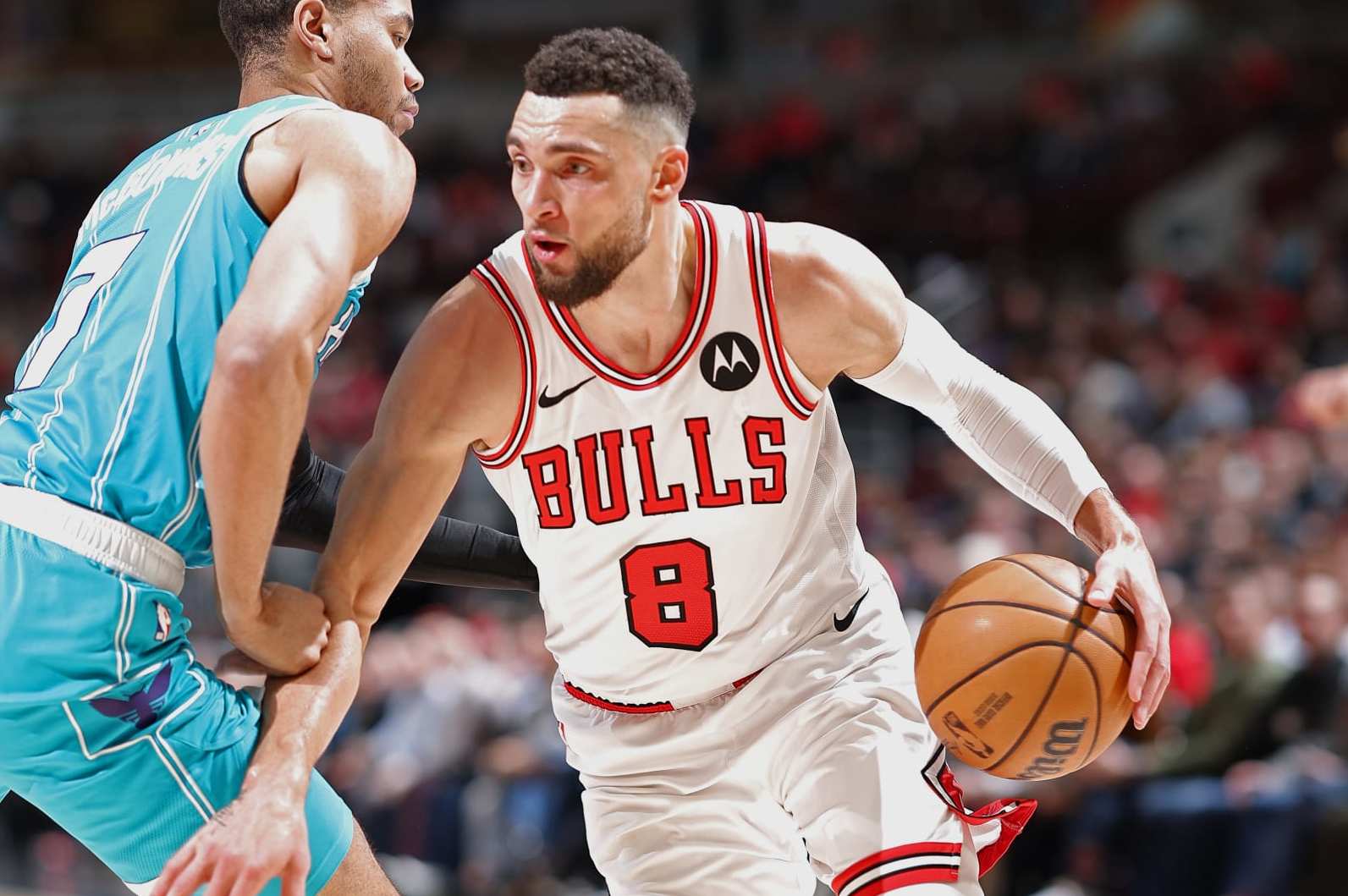
The NBA trade deadline is less than a month away, which means teams are facing their first real decisions since training camp.
Just as importantly, the stretch of roster stasis that begins after the deadline and extends until July 1 means squads throughout the league won't have another chance to make meaningful changes for a long time. For some of them, the next few weeks will be the most significant of the year.
Here, we'll run through a handful of the biggest names to appear in trade rumors and suggest whether their current teams should move them along or take them off the table. These decisions are often complicated and depend on fluctuating market values. But they also tend to serve as proxies for a franchise's overall direction.
We'll touch on all those broad and complex issues while making an effort to keep things as simple as possible. In the end, it'll come down to one question: trade or keep?
Pascal Siakam, Toronto Raptors
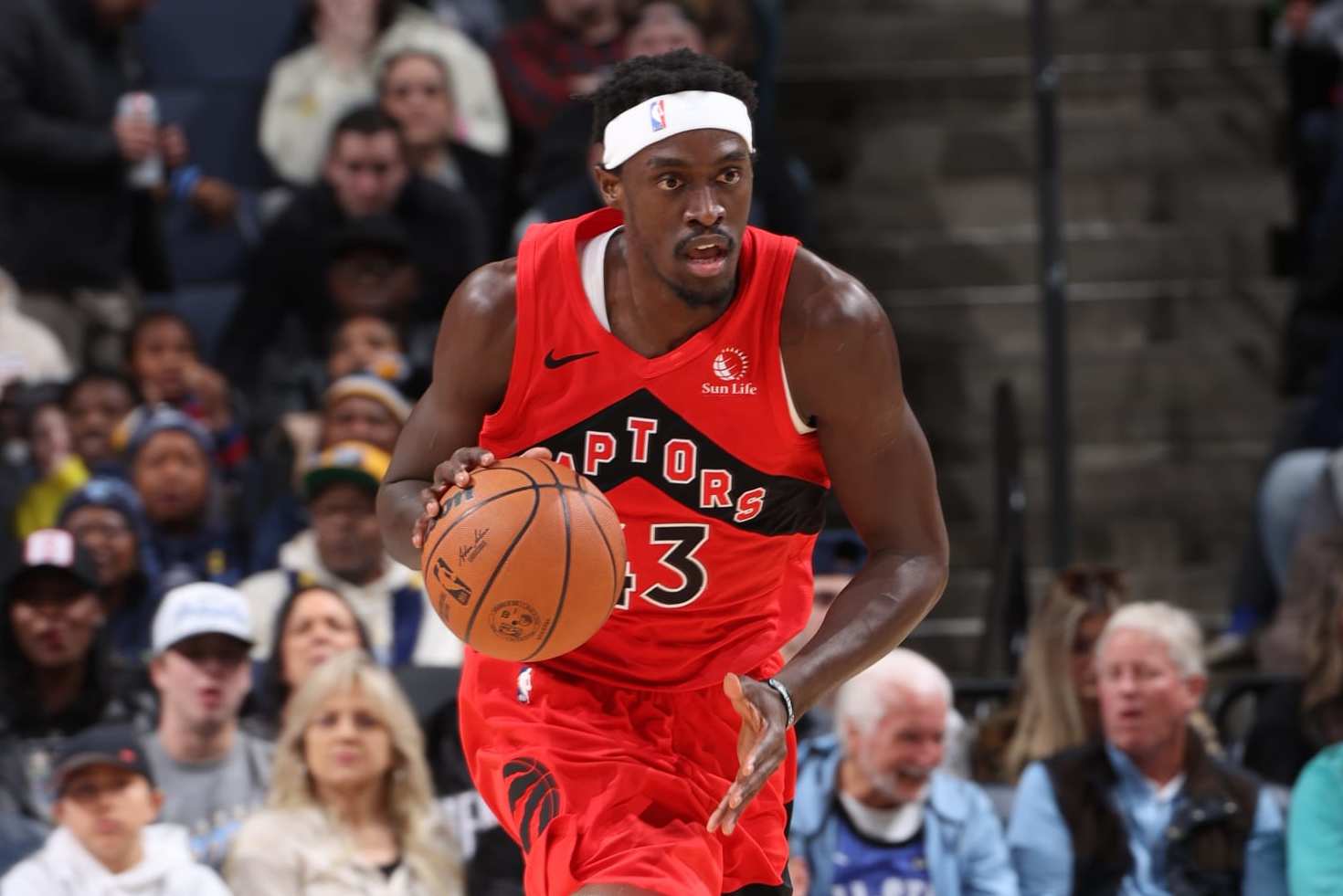
The Toronto Raptors got it wrong in a big way last season by failing to trade impending free agent Fred VanVleet, a mistake that'll hopefully help them get it right this time around.
League sources expect the Raps to trade Pascal Siakam ahead of the 2024 deadline, per ESPN's Tim Bontemps. The two-time All-NBA forward should bring back a significant return despite his expiring contract, though Toronto probably shouldn't let its demands get too high. Many potential trade partners could sign Siakam in free agency this summer without surrendering any assets but cash, which could lead to some lowballing.
VanVleet's exit—for nothing—should still be top of mind for Toronto. Better to accept a decent trade offer than to watch a star walk.
That the Raptors already moved fellow free-agent-to-be OG Anunoby (player option for 2024-25) suggests they've learned from last year's FVV gaffe. What's more, their willingness to deal Anunoby for a package from the New York Knicks built around players rather than picks could broaden the market for Siakam. Not every suitor has three first-rounders to spare, but most have one or two and an intriguing player (plus matching salary) to slide across the negotiating table.
Toronto should certainly still set a floor on what it's willing to accept for Siakam. It can pay him more than any other team in free agency, which creates a modicum of leverage. That said, Siakam's fit with franchise cornerstone Scottie Barnes remains uncertain, and the Raptors could do worse than re-orienting the roster around a younger core that now includes Immanuel Quickley and RJ Barrett.
Verdict: Trade
Donovan Mitchell, Cleveland Cavaliers
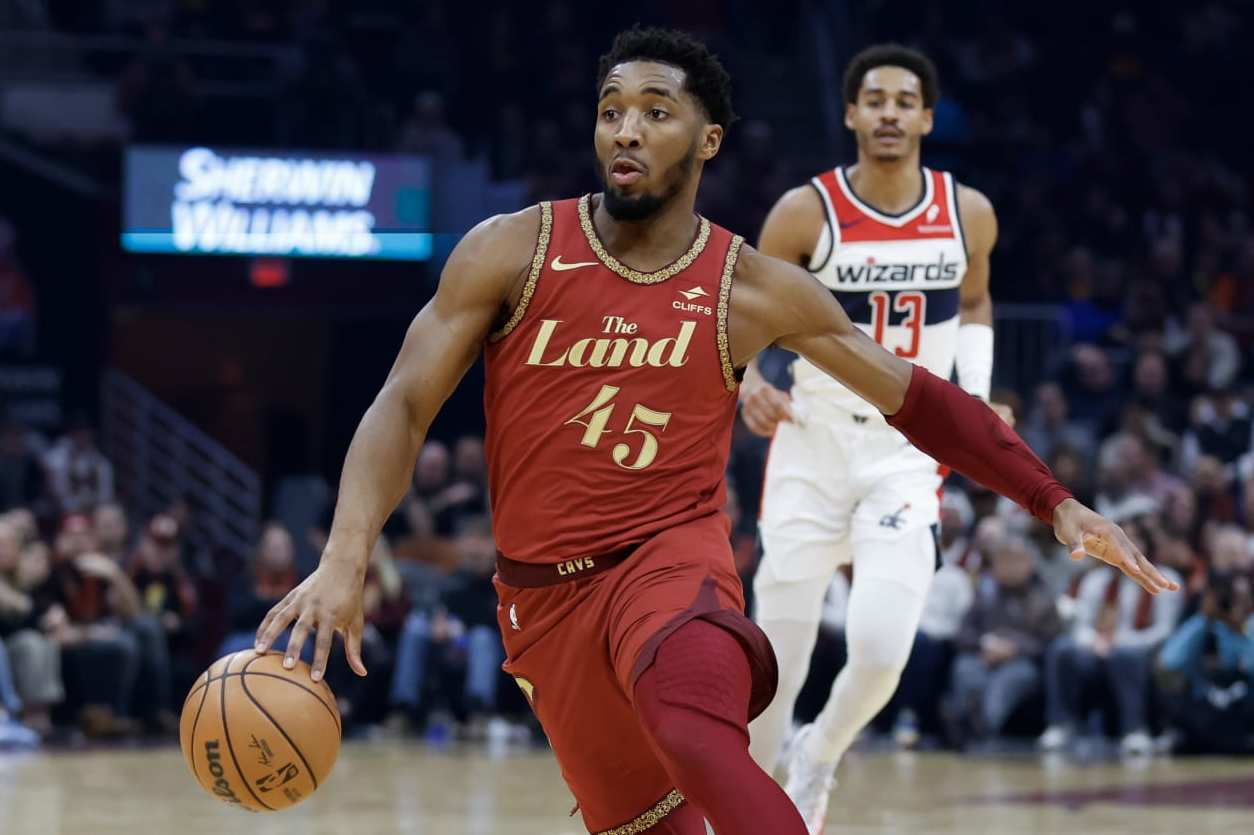
The word "Knicks" appears seven times in Adrian Wojnarowski's ESPN report on the trade that sent Donovan Mitchell to the Cleveland Cavaliers prior to last season. A lot of those mentions focused on New York's trade pursuit of Mitchell before Cleveland acquired the four-time All-Star, but it's been impossible to ignore the looming specter of a big-market franchise many expect Mitchell to one day join.
The Knicks almost definitely won't make a play for him this season, but the connection between them and Mitchell creates a kind of persistent, low-level urgency in Cleveland. Unless he extends with the Cavs, it'll always feel like the clock is ticking. Mitchell can opt out of his current deal after 2024-25, which means he'll essentially be an expiring salary next year.
Should the Cavs get way out ahead of things and move Mitchell now while his value is higher than it'll be as he nears his opt-out date? Will it matter to an acquiring team that it'd still have a year-and-a-half of control if it got Mitchell now, rather than next season? Would said acquiring team even want to take on the same problem Cleveland currently faces?
The game of chicken that began when the Cavs traded for Mitchell gets more dangerous with every passing day that brings him closer to his opt-out date. It's a risk, but Cleveland can afford to white-knuckle it until the 2025 trade deadline.
Verdict: Keep
Zach LaVine, Chicago Bulls
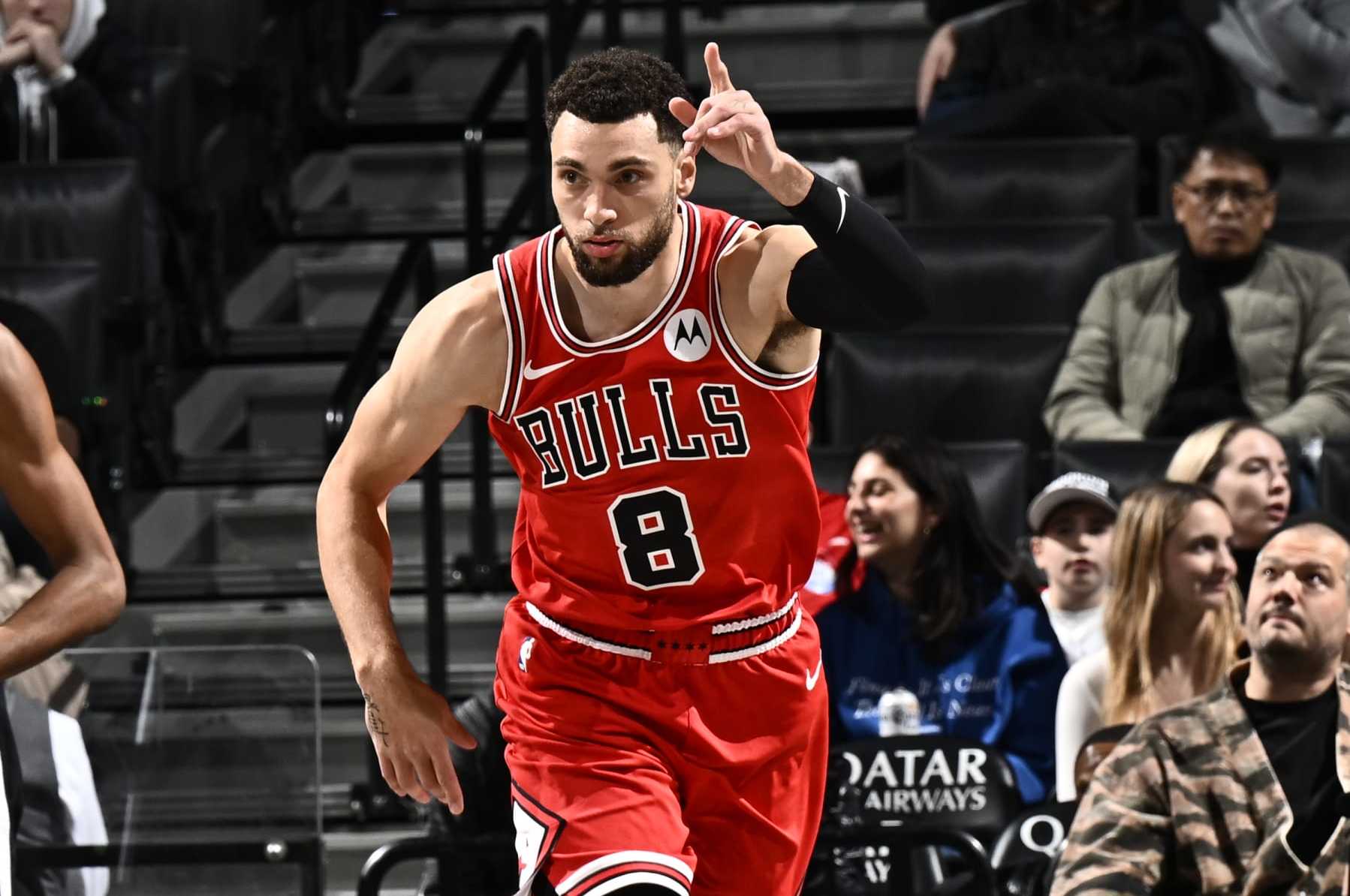
It would be on-brand if the Chicago Bulls viewed their success without Zach LaVine not as a reason to move the 28-year-old guard but as justification for keeping him.
If we're this good with him out, imagine what we could do with him back in the lineup!
The Bulls' 10-7 stretch during LaVine's time on the shelf with a foot injury was marked by smoother offense and more collective defensive buy-in. You'd think the loss of a high-volume scorer in just the second season of a five-year, $215 million contract would hurt the bottom line, but then you look back at LaVine's tenure with the team and realize an uptick in play during his downtime should have been the expectation.
Chicago has had a better net rating with LaVine on the bench in five of his seven years with the club, including each of the last three.
The Bulls should be looking to trade everything that isn't nailed down or named Coby White, but LaVine could be the asset most likely to bring back the draft capital and financial relief necessary to get a quality rebuild going. That contention might seem strange after having just pointed out LaVine's massive salary and apparent expendability, but it'll only take one team talking itself into the value of his efficient 20-plus points per game to create a trade opportunity.
Ultimately, the Bulls' decision on LaVine isn't even about him. It's about embracing the broader reality that the veteran core, which has a grand total of one playoff win across two-plus seasons, isn't worth keeping together.
Verdict: Trade
Lauri Markkanen, Utah Jazz
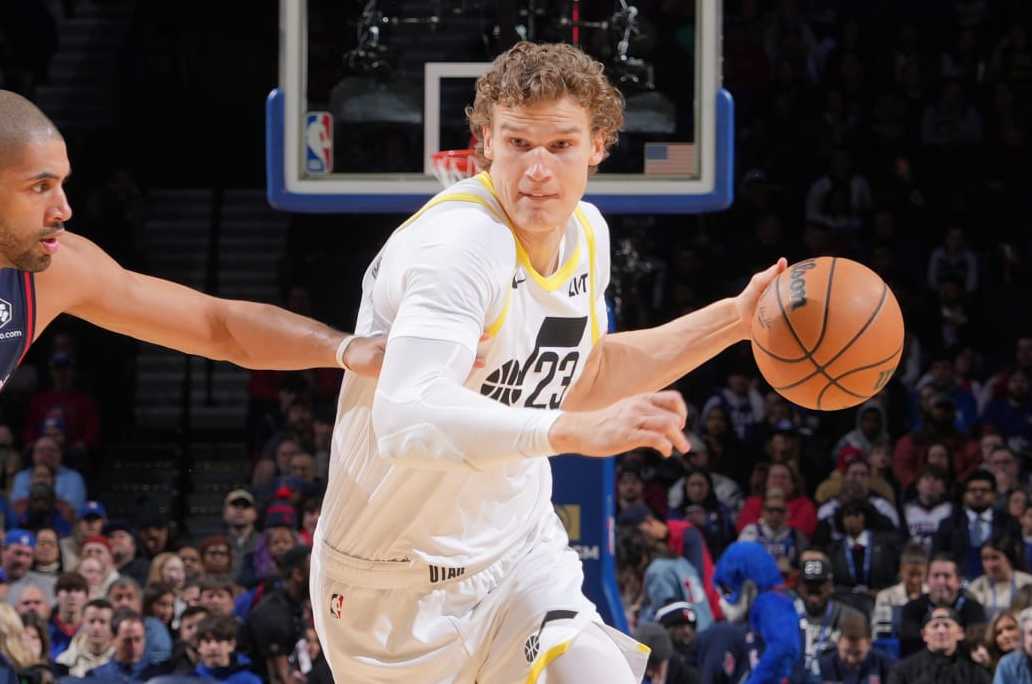
Lauri Markkanen has to be a little confused. All he's done is reprise his All-Star caliber of play from last season, profess a desire to stick with the Utah Jazz long term and continue to dramatically outperform his $17.3 million salary. Yet his name keeps showing up in trade chatter.
What team in its right mind would even consider moving a player like that?
Well, one led by notorious opportunist Danny Ainge, who's made a habit of unsentimentally dealing players when the price is right. Also, one that has gotten enough calls on Markkanen from other teams as to make him "no longer untouchable," per a mid-December report from Jake Fischer of Yahoo Sports.
If the Jazz get an offer for Markkanen that bowls them over (think three or four high-end first-rounders and a prospect), or if it becomes clear to them that Markkanen's next deal is one they don't want to pay, maybe there'd be some logic to moving a 26-year-old forward averaging an efficient 23.6 points per game on a role-player's salary. But otherwise, Utah shouldn't be rushing to deal its most valuable player before such a drastic move is necessary.
The Jazz can renegotiate and extend Markkanen's contract prior to next season, and they should put some extra value on the fact that free agents don't tend to favor Salt Lake City as a destination. Utah is one of a few franchises that almost always has to overpay for talent. So if Markkanen's ask on his next deal is a little above market, Utah should be willing to pay it.
If negotiations on that extension never start or if they falter, the Jazz can still swing a trade over the summer or even at the 2025 deadline. There's no reason to move on from Markkanen just yet.
Verdict: Keep
DeMar DeRozan, Chicago Bulls
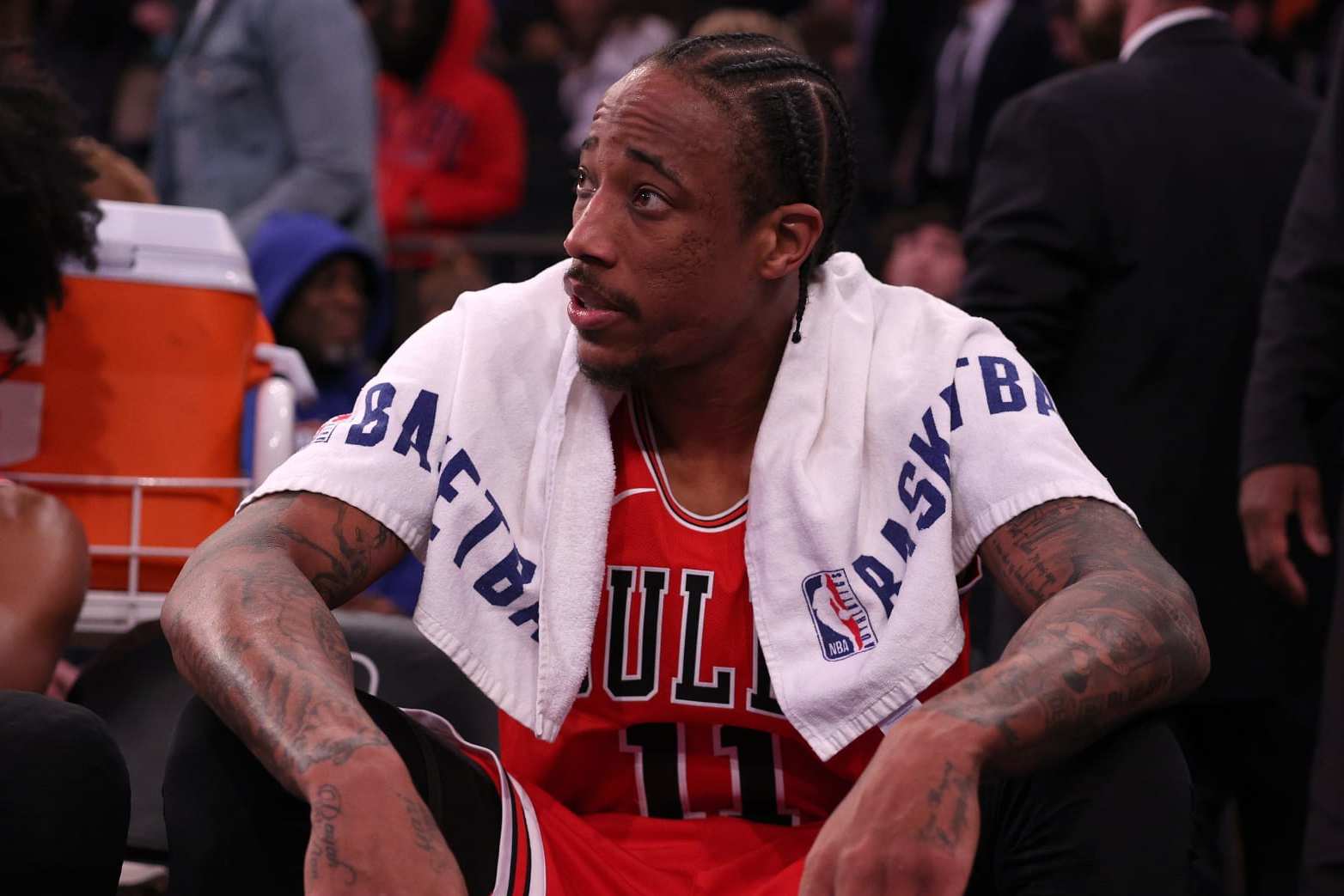
We've already suggested the Chicago Bulls should move Zach LaVine and pivot into a rebuild, even if trading the costly scorer for positive value might not be as easy as some imagine. It follows that the much simpler task of dealing DeMar DeRozan is also the correct play.
Nearing the closing chapters of his career at age 34, DeRozan can still fill it up as an isolation scorer who thrives in the mid-range area. His 22.0 points per game are at a three-year low, and his 56.1 true shooting percentage marks the first time he's been under 59.0 percent since 2018-19, but buckets are buckets and DeRozan can get them.
Not every team needs a somewhat one-dimensional vet to juice its offense, but the financial flexibility of DeRozan's expiring contract is a major bonus to an acquiring team. Even at a "rental" price, DeRozan could bring back a first-rounder and perhaps even a prospect from the right organization. If the Bulls are willing to take on longer-term salary in the bargain, the asset haul could expand.
Extension talks between DeRozan and the Bulls reportedly stalled in December, so it's only logical for Chicago to shop an aging star it doesn't seem intent on keeping.
Verdict: Trade
Dejounte Murray, Atlanta Hawks
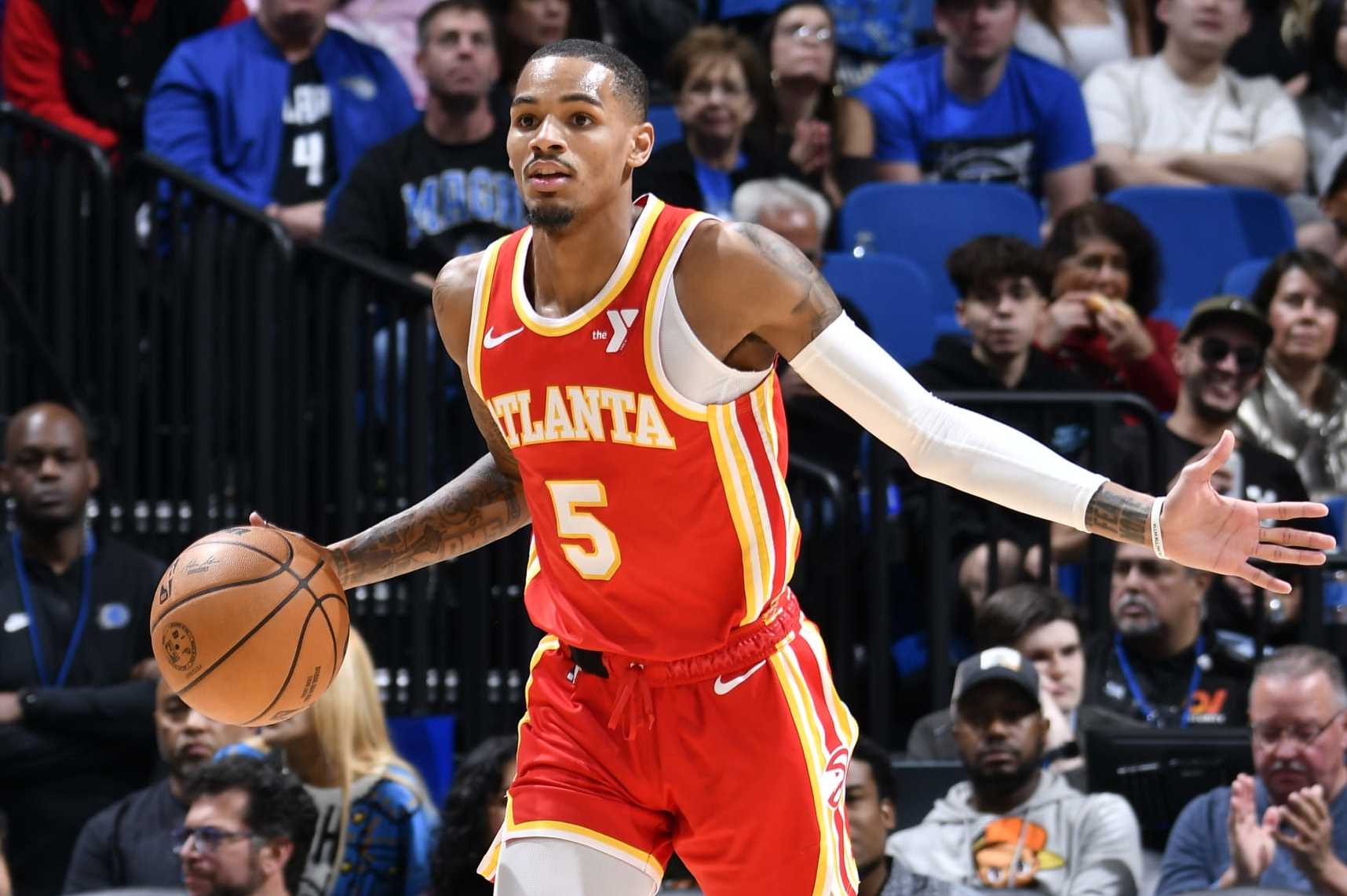
The last and least decorated of the deadline's potentially available stars, Dejounte Murray should appeal to several teams. Once regarded as a defense-first guard, the 27-year-old has skewed toward offense since joining the Atlanta Hawks.
Parties interested in adding Murray and his reasonable four-year, $114 million salary could talk themselves into him solving their problems on either end. Still in his physical prime, theoretically capable of refocusing his energy on D and currently scoring more efficiently than ever before, the one-time All-Star ticks a lot of boxes.
Suitors could imagine him running their offense as a lead guard, rediscovering the drive that landed him on an All-Defensive team way back in 2017-18 (don't forget 2021-22's steals crown either) or doing a little bit of everything.
Atlanta surrendered three first-rounders (two of which are unprotected) and a swap in the package for Murray, and it'll be hard to get all those assets back by moving him. Then again, with the security of a below-market contract that extends through 2026-27 with a player option for 2027-28, maybe the Hawks can come close to recouping their assets.
Set aside the asset-based aspects, and the fact remains that Atlanta is stuck in the mud and in need of a shake-up. Currently outside the East's top 10 and continuing to fail on the defensive end, the Hawks can't really remake themselves by moving some of their other big contracts (Bogdan Bogdanović excluded). De'Andre Hunter and Clint Capela aren't going to net financial flexibility or premium draft picks.
Atlanta needs change, Murray's value may not get much higher and the market is full of teams that could use a two-way combo guard. Those are good conditions to deal.
Verdict: Trade
Stats courtesy of NBA.com, Basketball Reference and Cleaning the Glass. Accurate entering games played Thursday, Jan. 11. Salary info via Spotrac.
Grant Hughes covers the NBA for Bleacher Report. Follow him on Twitter (@gt_hughes), and subscribe to the Hardwood Knocks podcast, where he appears with Bleacher Report's Dan Favale.
